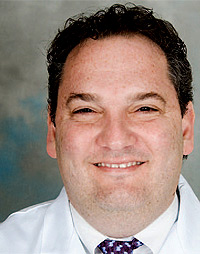October 15, 2012 -- The problem with how we address pain doesn't just lie with the medical community, and the problem is not solely that prescription painkillers are overprescribed, said Dr. Alex Cahana, a pain specialist with the University of Washington who spoke at a recent pain management conference in Portland.
 “For me the whole opioid crisis is not about opioids, it's about an impoverished dialogue,” Cahana said. “We don't talk to each other.” That results in clinical harm – 50 opioid overdoses per day – as well as the social harm of recreational dabbling in opioid medications, and perpetuates a larger cultural harm.
“For me the whole opioid crisis is not about opioids, it's about an impoverished dialogue,” Cahana said. “We don't talk to each other.” That results in clinical harm – 50 opioid overdoses per day – as well as the social harm of recreational dabbling in opioid medications, and perpetuates a larger cultural harm.
“We really think we can't go through life without medicines. We can't do sports without doping. We can't deal with pain without using painkillers,” Cahana said. “There are scientific studies that the use of these types of medications handicap our bodies to actually use the endorphin systems. The endorphin system is responsible for all of our appetites and bonding, and maternal-infant bonding.
That problem is symptomatic of bigger issues in the culture: not just the desire for quick fixes that may hinder people long term. Another problem is the way we talk about pain as a culture, since there are actually different types of pain, but they tend to be treated the same way. “It's unfortunate that in English we use the same word for pain as a byproduct of a disease as for pain as a disease,” Cahana said, drawing a distinction between the type of pain that arises from an easily identifiable underlying cause, such as a broken arm or an inflamed appendix, which is what most people think of when they refer to physical pain.
In reality, he said, it's in a different category from chronic pain, which he defined as pain that arises when there is nothing to do – no medical process to address the underlying issue, but unfortunately both types of pain are treated the same way.
“The medical community is trained to manage diseases. We're not trained to help people manage their lives. The medical community is medicalizing existential suffering,” Cahana said. “We think of pain as something that we feel. When you think of pain as something that you feel, then my job is to fix it.”
Cahana urges patients and providers to think about pain as a verb rather than a noun – as something that all people do: “I am paining. You do it well or you do it poorly.” One reason alternative therapies can be so powerful, he said, is that they try to address the mind-body connection rather than simply the body. Good pain management should focus on trying to help the patient lead as normal a life as possible and decrease the patient's reliance on the health care system.
“Many times we use the word pain, but I think we mean suffering,” Cahana said. “Suffering is the negative behavior. I like to think of suffering as an unfulfilled promise.” Americans are promised that they'll always be young, healthy, sexy and rich – and when that isn't fulfilled, they suffer.
Patients don't go into doctor's offices saying they're having a hard time coping with the loss of a job or the departure of a spouse, though, Cahana said. “They don't come say that to me. They come and say their back hurts. This is not to say that there's no room for injections, no room for pills. It cannot supplant a meaningful dialogue. It means a professional that's poised to listen and poised to create a life plan.” Part of that necessitates a patient who is willing to listen and make major life changes to improve their overall health, he added.
“I think we will find out that there are two things: not all pain relief is good. We accept also that not all pain is bad,” Cahana said. “If we can pain as a verb better, we will get one step closer to sustainable happiness.”